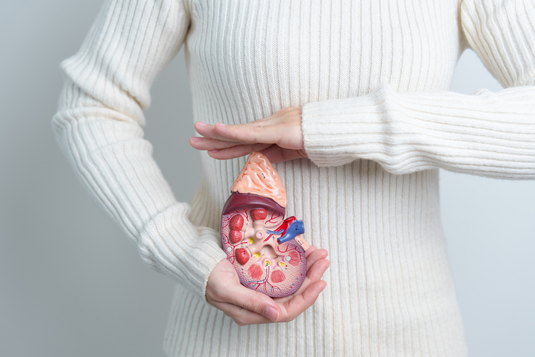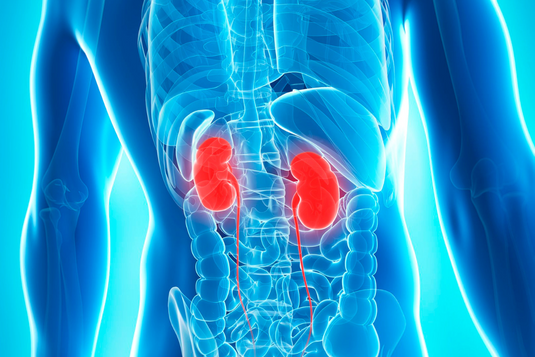Have you or a loved one ever been diagnosed with Seasonal Affective Disorder (SAD) or the so-called seasonal depression? Although this label is being applied more and more often, there is a lot of misinformation surrounding CAD that prevents people from finding the right answers to their health problems. If you've been diagnosed with SAD, take it as a red flag that something else is going on in your body that needs attention. Many well-intentioned doctors and specialists diagnose patients with SAD without actually knowing the true cause of the problem. The patient must do a thorough investigation himself to find out the actual causes of his health problems. It is precisely this lack of complete information that is the main reason for the article that we want to share with you today.
Symptoms associated with SAD
People diagnosed with SAD may experience symptoms such as apathy, low tone, lack of energy, fatigue, pain and discomfort, feelings of sadness, loneliness, depression, anxiety, nervousness, and a sense of detachment from the world and others. These symptoms can vary in strength in each specific case. For example, one person may be mildly depressed, while another may feel so depressed that they have suicidal tendencies.
In many patients, symptoms become more severe over time. For example, someone who experienced mild winter fatigue, just a few seasons later, may have difficulty lifting their arms or moving their legs. Another may suffer from a lack of energy and low tone every winter for ten years before having an extremely difficult winter filled with various symptoms such as extreme fatigue, depression, pain and numbness in the limbs. In this case, the practitioner will most likely rule out the diagnosis of SAD and try to understand what is actually going on. If the practitioner had initially investigated the patient's milder symptoms and referred him earlier for treatment, the patient probably could have avoided developing such severe symptoms. If you or a loved one notices even the slightest manifestation of any of the listed symptoms, no matter what season it is, you should do a thorough investigation into the real causes. Don't let yourself be misdiagnosed just because these symptoms appeared in the middle of winter. There is another reason why you are experiencing the so-called SAD-related symptom.
Establishing the main reasons for the manifestation of SAD
If your doctor is blaming SAD for your depression or pain, they don't understand what's really going on in your body to cause these symptoms. Maybe these problems are too mild to be detected by tests, and instead of saying "I don't know," your doctor says it's SAD. If you struggle with depression, you may have a build-up of toxic heavy metals in your brain that need to be cleared through detoxification. You most likely have a sluggish liver function that also needs cleansing. If you are experiencing severe pain and suffering, it is most likely a viral problem that needs to be addressed. Do you have herpes zoster or cytomegalovirus ? Could they be related to the Epstein-Barr virus ?
As the information we share becomes more and more popular, these are just some of the questions doctors and practitioners need to start asking their patients to discover what's really behind the mysterious symptoms they're suffering from.
You may be surprised to learn that many of the symptoms associated with SAD are actually neurological. Depression, melancholy, feelings of loneliness, feelings of hopelessness, feelings of being lost or detached - all these symptoms are neurological. Other neurological symptoms include anxiety, nervousness, problems with concentration and focus, and more. Even if your depression is triggered by the loss of a loved one, it is still neurological because your nervous system is affected by that loss. Betrayal, any kind of breakdown in our personal relationships and other emotional wounds also affect our brain and nervous system. Other symptoms, such as weight gain, can result from the liver becoming overworked due to poor food choices over a period of time, exposure to toxins, a minor viral infection, or the accumulation of toxins in the body throughout our life. life. Symptoms can also be caused by many other possible problems.
How the seasons can affect major health issues
Certain characteristics of the different seasons may exacerbate symptoms that you or your loved ones are already experiencing, especially if you are more sensitive. Lack of sunlight, cold temperatures, the contrast between the cool and humid air outside and the very dry and warm environment inside, and constant wind or snow are not as conducive to your health as moderate temperatures and sunlight. But the cause of the symptoms is not the seasons themselves. For example, someone who has severe sinus problems in the winter may experience more severe symptoms when their home is filled with dry, warm air. Even though the sinus problems themselves were already there, the dry heat exacerbated the symptoms. The real cause may be strep or necrotic tissue in the sinuses from a sinus infection thirty years ago. Regardless of the cause, the season only draws attention to already existing health problems.
Often in the spring, our liver detoxifies itself and begins to flush out waste viral residues, heavy metals, pesticides, plastics and other toxins that clog this vital organ. When these toxins enter the bloodstream, they can cause depression, anxiety, and other symptoms during the spring and summer months that people mistakenly associate with CAD. If someone diagnoses you with SAR because of these symptoms, they will miss the real cause - self-detoxification of the liver. In autumn, most people experience a self-detoxification of the spleen, and some also an additional self-detoxification of the liver.
Severe air pollution during the humid summer heat can also worsen the health problems people experience. The air contains less oxygen and has a huge amount of toxins, such as radiation and heavy metals. If you suffer from fatigue or swelling, your problems can easily worsen during this period.
During the fall and winter months, people may also experience SAD-like symptoms, as dietary habits and physical activity levels tend to change. Even health-conscious people don't always make ideal food choices around the Christmas and New Year holidays, and people who are active in the warmer months may not get out to exercise as often when the weather changes. Because of this different lifestyle, the liver can become a little more clogged, the blood can become a little thicker, less oxygen reaches the brain, and pre-existing health problems can be triggered. When these symptoms appear, instead of looking for possible viral causes, toxic heavy metals in the body, or other possible factors, doctors may incorrectly look for the cause in the season and make a diagnosis of SAD.
Medicinal nutritional supplements and teas
If you've been diagnosed with CAD, your GP or GP has probably advised you to start taking a vitamin D supplement. Although vitamin D3 can be helpful, there are many other supplements that offer even more help to people , who struggle with the symptoms associated with CAD.
Zinc helps strengthen the immune system and is an extremely important supplement for anyone diagnosed with CAD. Vimergy's Liquid Zinc Sulfate is an amazing option, and you can find it and all the other supplements listed below at www.prirodnik.com . If you prefer to take zinc picolinate, that is also an option. It's best to avoid zinc supplements that are full of preservatives like citric acid.
Organic vitamin B12 , which contains both adenosylcobalamin and methylcobalamin, is another essential supplement to consider. Many of the symptoms associated with a diagnosis of SAD, such as depression, anxiety, feelings of detachment, problems with focus and concentration, are neurological. Liquid vitamin B12 is a supplement that strongly supports the central nervous system. Excess weight gain, another symptom of CAD, is often associated with slowed liver function, which can also be improved by taking liquid vitamin B12.
Spirulina contains a number of powerful nutrients and will provide incredible support to anyone struggling with fatigue, viral load or heavy metals in the body. If you are concerned about vitamin deficiencies, taking spirulina will certainly help.
Lemon balm is a fantastic nerve tonic. If your symptoms, diagnosed as SAD, are actually a mild manifestation of Epstein-Barr , chronic fatigue, herpes , strep, or others, lemon balm is the appropriate antiviral and antibacterial solution. It also acts as a relaxant and strengthens the central nervous system.
Depending on the type of symptoms you have, you may want to try hydrastis for a week or two to see if its antiviral and antibacterial qualities will help with your particular health concerns.
Euphrasia is another antiviral and antibacterial herb that can help as a blood purifier.
Including red clover in your treatment is another way to help purify your blood. You can try drinking a cup of red clover blossom tea daily in the winter to help purify the blood and support the liver.
Nettle leaves can calm the nerves, reduce inflammation and potentially reduce pain.
Turmeric can also help. A simple cup of turmeric tea with a squeeze of lemon or a little ginger can be another of the many secret weapons used to combat the symptoms of SAD.
Medicinal foods
Don't forget to include fresh foods in your diet. During the winter months, it's quite easy to forget about the fresh fruits that we generally enjoy in the summer or early fall, such as strawberries, blackberries and apples. These foods that we enjoyed earlier in the year protect our nervous system and our overall health. Eating fresh fruit throughout the year is essential for your health. During the cold winter months, remember that the fruit you eat still contains the sunlight needed to ripen it, even if it is grown and shipped from another country. Try to include in your menu fruits and vegetables that you consumed during the summer, such as red or green lettuce. Other great foods to eat are fresh spinach, celery, celery juice, cucumbers, avocados, oranges, walnuts and hemp seeds.
Depression, anxiety, mood swings, and problems with focus and concentration are often associated with toxic heavy metals, so starting a heavy metal detox can be extremely helpful. The five main elements of a heavy metal detox include wild blueberries , spirulina , barley grass juice powder , cilantro, and dulce .
How to move forward
If you have been diagnosed with SAD, know that the doctor who diagnosed you most likely did not understand the true cause of your symptoms. The changes in the seasons only serve to reveal the problems already present in your body and it is important to find and target the real health problems you have. By incorporating some of the healing supplements and foods mentioned above and trusting a doctor who is willing to understand the actual causes of your symptoms, you will be taking a step toward true healing. If your symptoms are mild, starting your treatment plan soon can help prevent more severe symptoms in the future. Free yourself from the false diagnoses that have held you back and move forward with the confidence and knowledge that true healing is possible!








